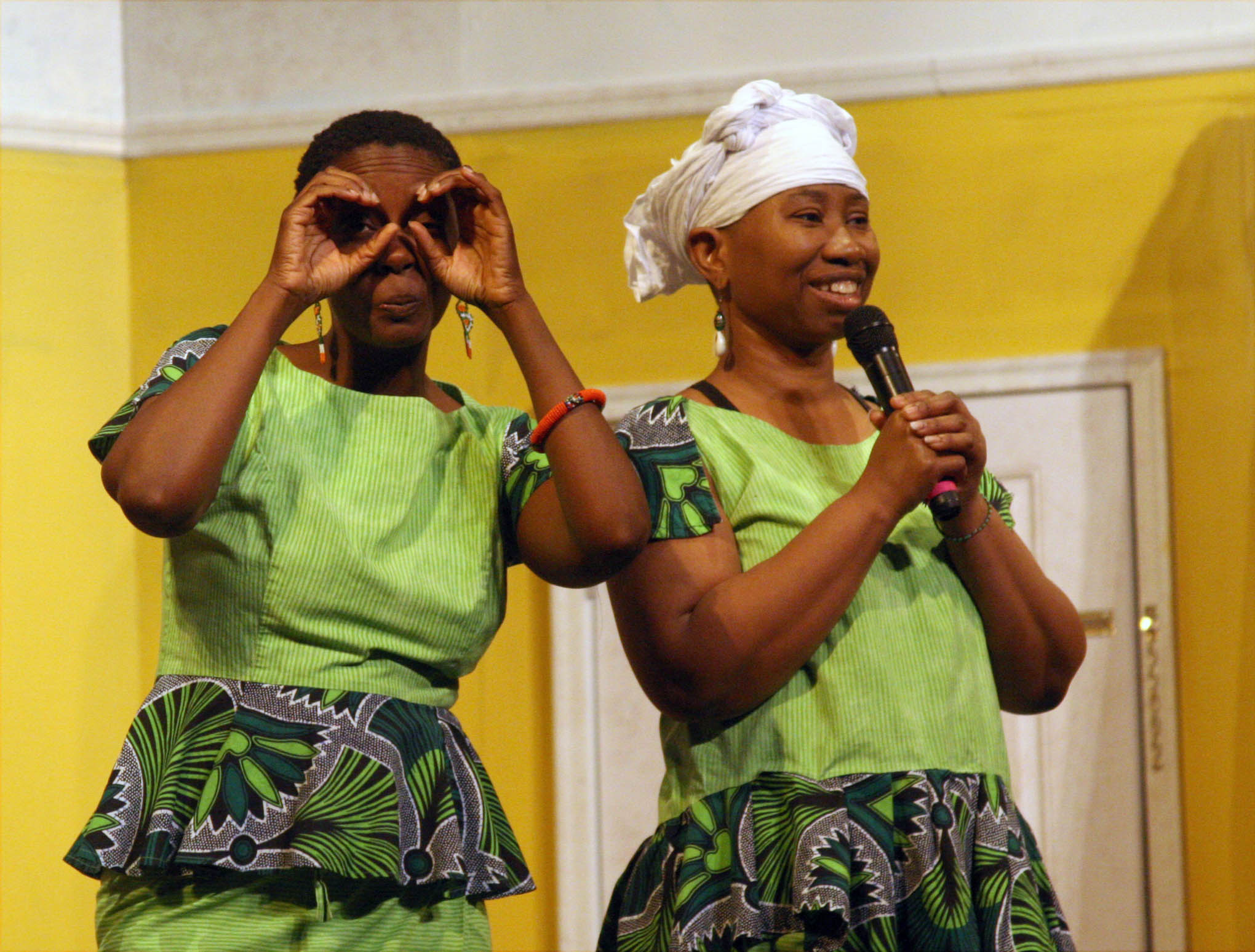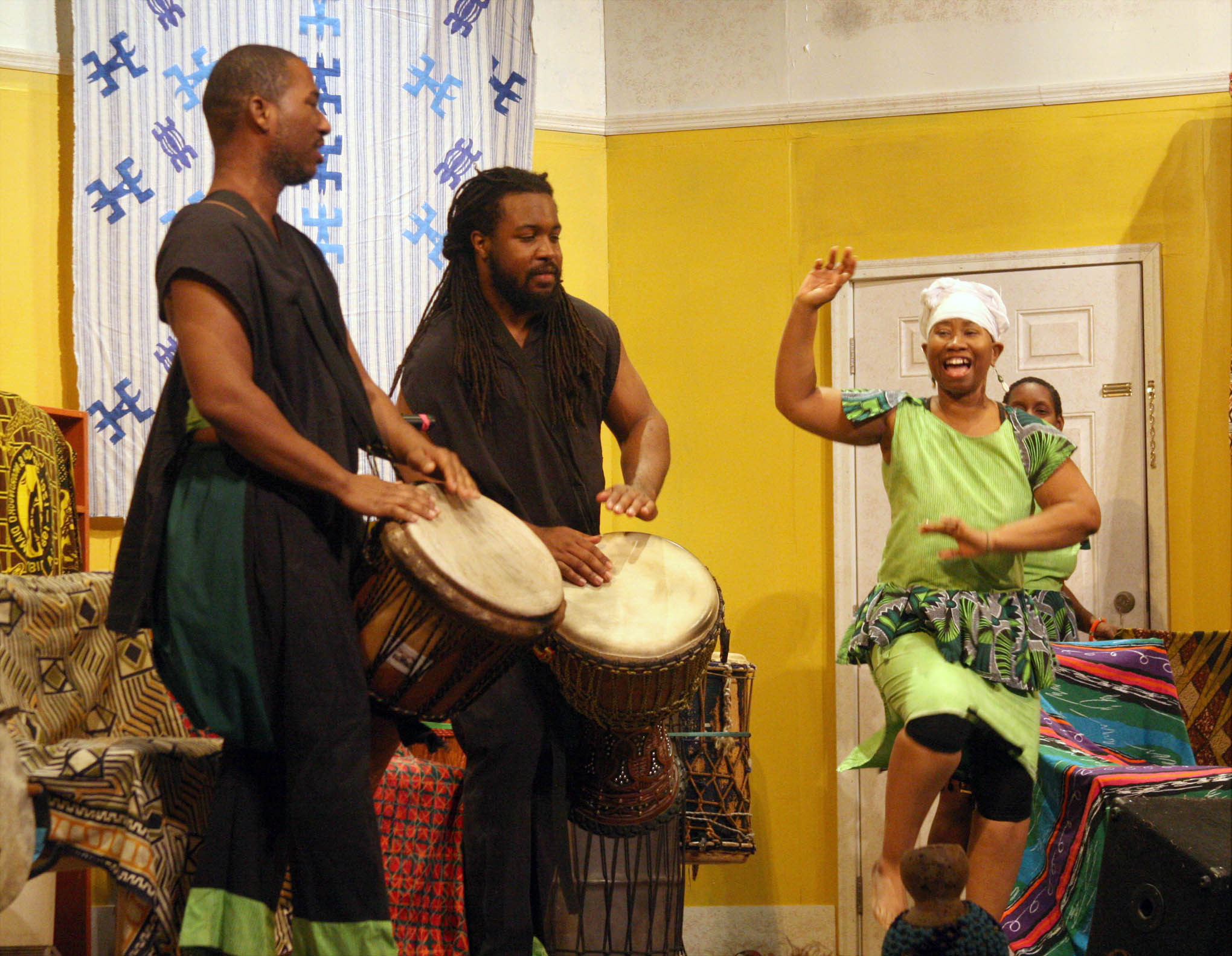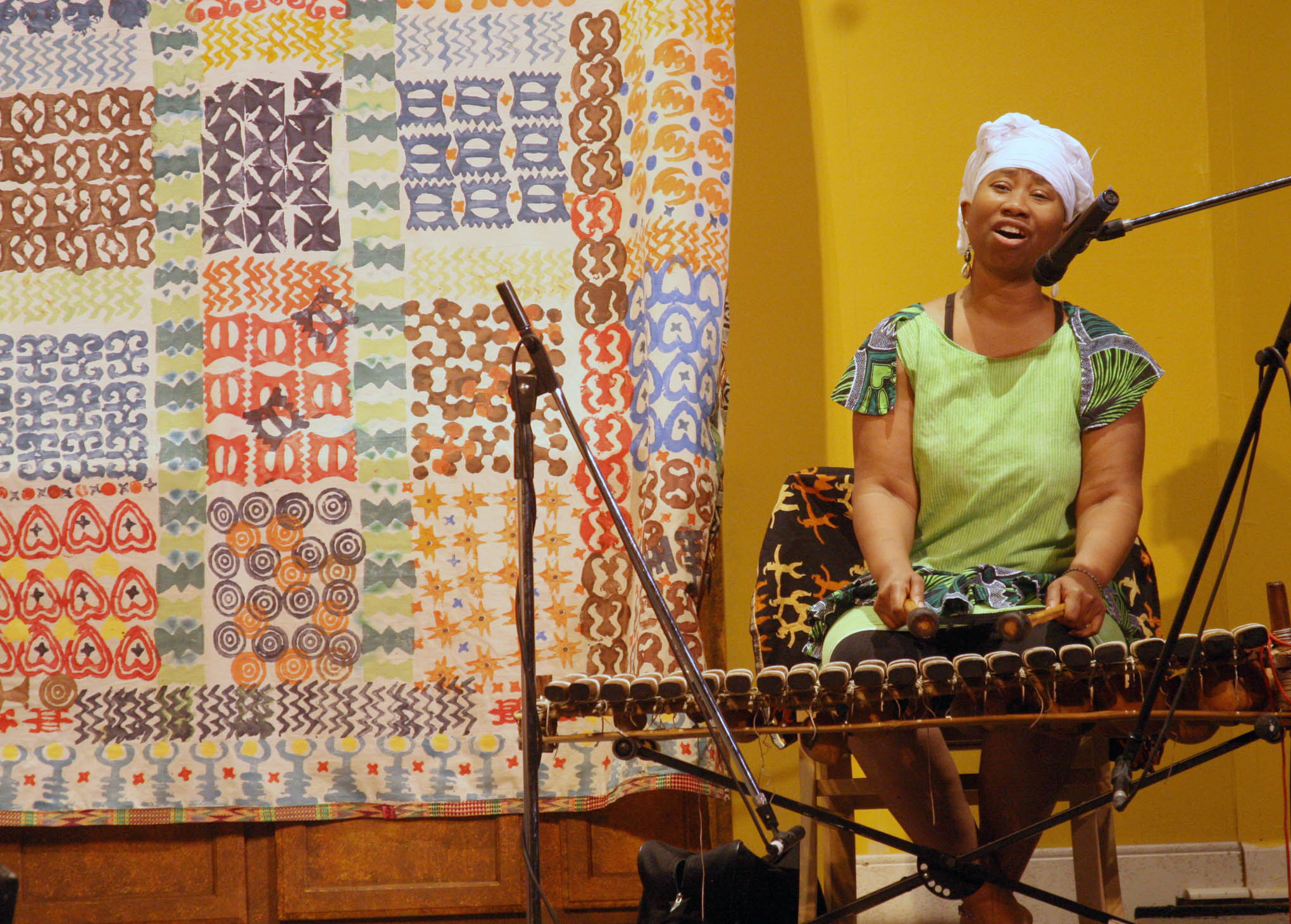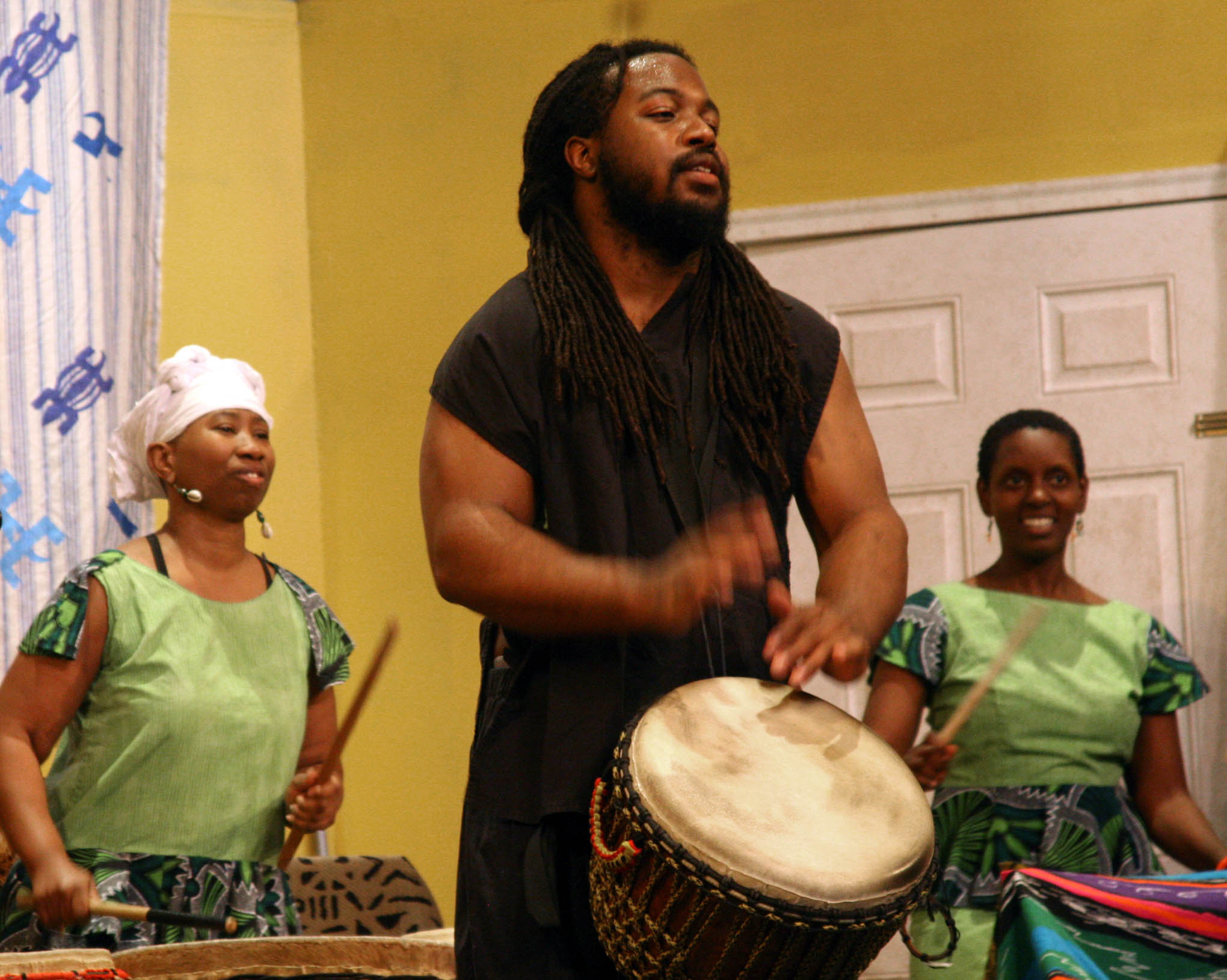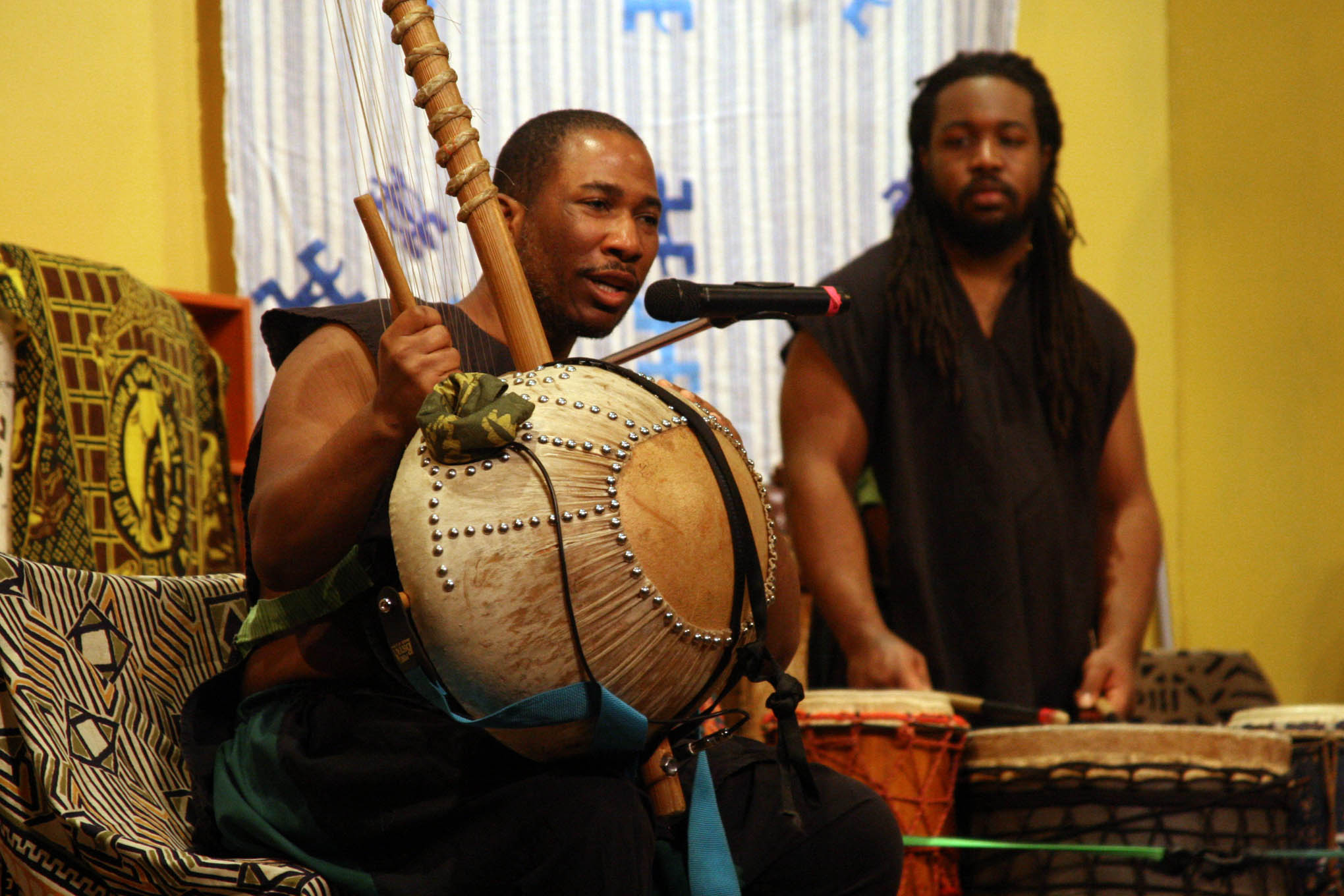College News
CCCC students see cultural series performance
Notice: This article is older than 12 months. Names, contact information, programs, titles, etc. might have changed. If you have any problems please call the main college number, 1-800-682-8353, and we will be happy to direct you accordingly.
03.09.2018 • College & Community • College General • Special Events
SANFORD - Elegantly weaving music, dance and stories into a vibrant cultural tapestry, the performance troupe Shabutaso transported Central Carolina Community College students to West Africa during its recent performance at the Temple Theatre.
Shabutaso, with a music director born in Liberia and an artistic director born in Guinea, provided lively insight into music and life on February 22 in "A Griot's Gourd," part of an annual cultural series for university transfer students.
The show's title reflected two elements of what unfolded on stage: Cultural tales told by a griot, the member of West African societies who blended history, storytelling and musicianship, and his stringed instrument fashioned from a large gourd. This instrument, the kora, looks like a lute, the Renaissance-era instrument played like a guitar. But the kora stands on the floor in front of the musician, who plucks strings like a harp, using both index fingers and thumbs.
"We're here to share some of our songs, our culture, our stories," said griot Teli Shabu to get the performance rolling. "And our songs."
Clearly, music was the focus of this energetic performance, with many songs used to introduce students to the unfamiliar instruments and their history. At one point, Ifakunbi Shabu got a careful grip on her balafon and lifted it into the air to display the gourds hanging underneath keys on what otherwise looked like a xylophone. That brought a surprised reaction from the 150 students attending.
But it wasn't only about the music -- or only about the band.
During transitions from one song to another, the instrumentals continued, but got quieter, as members of the troupe related cultural tales that explained how their instruments came to be and how they were used in West African villages -- stories that conveyed as much insight into history and culture as they did into music itself.
The room really rocked when students got involved, like when drummer Lamar Lewis Chinfloo gave everyone a quick djembe lesson. Asking everyone to hold up their hands, he guided them in how to shape their fingers and strike their laps. Then with a loud command, everyone dropped their hands to create a sound. He did it a few more times using different hand formations and striking techniques, to show how he's able to coax so many different sounds out of a single drum.
But the pinnacle of Shabatuso's performance came when more than a dozen students were pulled into the aisles to try some West African dance. As three of the band members played a lively, but slowly paced melody, Aya Shabu began with a few simple claps and shoulder motions and the students mimicked them with reasonable success. Then, she added some hand motions and turns, and the students managed to hold on for the ride.
About that time, everyone in the theater started to realize where this was headed. The band kept getting faster and louder, and Aya got faster and more ambitious, until she finally broke loose with some acrobatic, wiggly-leg maneuver that made the audience erupt with laughter and a few of the dancers throw up their hands in defeat.
Aya describes the group's mission as "edu-tainment," combining entertainment with a deeper look at music, dance and culture. She also hopes that their performance will help students appreciate the diversity of a continent that many people don't understand very well.
"We always tell our audiences that 'Africa is a continent, and not a country,'" she said in email before the performance. "In fact, Africa is the second largest continent. There are over 50 different countries on the continent. There are over 2,000 different ethnic groups and even more languages spoken. All this to say that Africa is diverse.
"We really shouldn't be talking about Africa as a monolith. When we think about Europe, immediately we are thinking about specific countries. That is not the case for many of us when we think about Africa."
Aya believes that exposure to other people from different backgrounds -- whether it's through travel, routine encounters or cultural performances like this -- helps everyone avoid potentially damaging misunderstandings and find fresh, new ways of looking at the world.
Shabutaso's appearance was made possible by funding from the North Carolina Arts Council through a Lee County Arts Council Grassroots Grant. It was hosted by Producing Artistic Director Peggy Taphorn and the Temple Theatre.
For information about Central Carolina Community College and its programs, visit its website, www.cccc.edu or call the college at 919-775-5401.
Categories
- Admin, Faculty & Staff Category
- Arts & Entertainment Category
- Clubs Category
- College & Community Category
- College General Category
- Continuing Education Category
- Curriculum Programs Category
- Distance Education Programs Category
- Facilities/Buildings Category
- Finances Category
- Foundation Category
- Graduations Category
- Lee Early College Category
- NCCCS Category
- SGA Category
- Special Events Category
- Sports Category
- Students/Graduates Category
- Uncategorized Category
Archives


